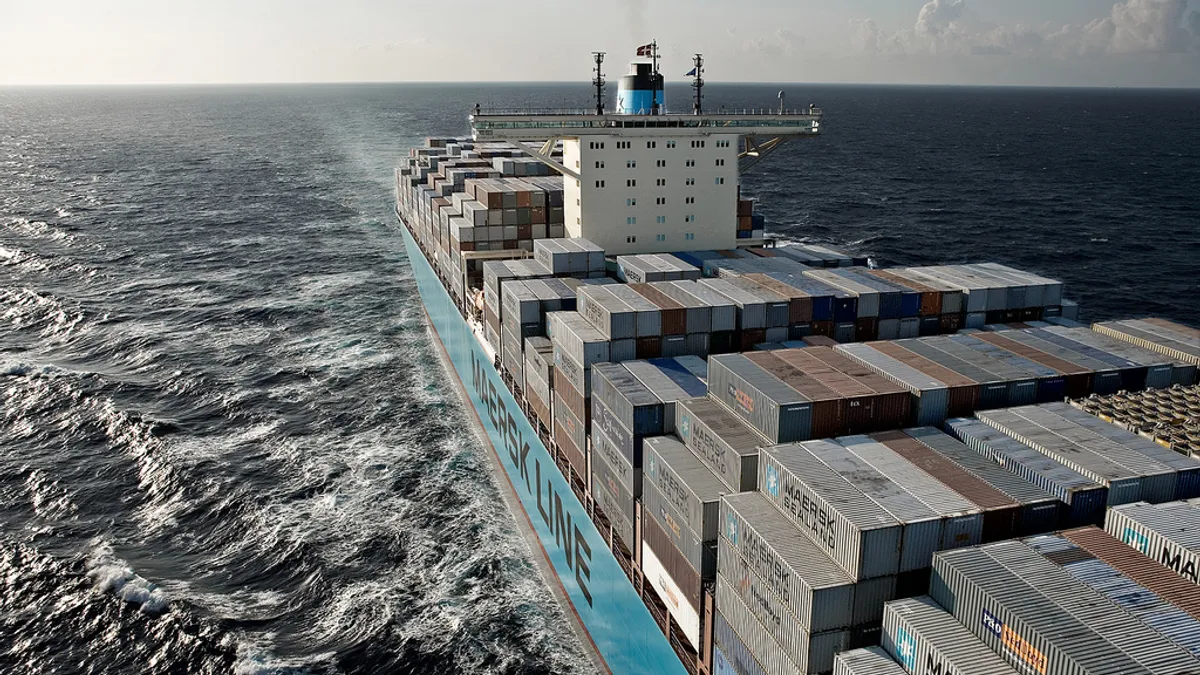Dive Brief:
- Maersk's volume declined 3.6% YoY in Q3 as all its trade lanes — except for vessels heading to North America — experienced a downturn in traffic, the carrier announced in its earnings report this week.
- The existing demand on the lanes into North America did allow Maersk to increase rates by an average of 4.4% YoY across its network.
- "Despite the fact that we are still in the middle of the pandemic with continued high uncertainties, we have seen a strong recovery in demand within transportation and logistics, which has led to equipment shortages, both containers and vessels at selected trades, which has been a supporting factor in the freight rates in the short term," CEO Søren Skou said on the earnings call.
Dive Insight:
Maersk's earnings highlight the unequal recovery taking place across the global economy. Some shippers have left the market, leading to lower volumes, but high demand heading into North America has made it hard for shippers to find space and more expensive when they can.
"We do indeed expect freight rates in the contracts to go up when we go to the contracting season over the next couple of months," Skou said in response to an analyst question.
The carrier noted that volume recovered "significantly" compared to Q2, but this was "very uneven across different geographies," it noted in its Q3 report.
It specifically noted high volumes in the East-West trade lanes out of Asia. This high volume is expected to continue for the foreseeable future. The three-week volume forecast for the Port of Los Angeles shows imports up more than 40% through weeks 47 and 48, and up 20% for week 49.
The shifting demand patterns throughout the pandemic has led Maersk to change capacity throughout the year.
"Going into the third quarter, we have carefully matched capacity deployment to demand to the best of our ability," Maersk CFO Patrick Jany said on the company's earnings call.
By the end of Q3, "very few vessels were idled" as a result of the demand uptick, according to the quarterly report. Executives said there aren't plans right now to expand capacity beyond current deployment.
Contracts for shippers are expected to increase without plans to expand capacity, which Skou confirmed.
The carrier did note that the demand swings resulted in "a decrease in reliability." It didn't expand on this, but recent figures from Sea-Intelligence show that all carriers have struggled with schedule reliability in recent months. Global schedule reliability across carriers dropped to 65% in Q3 and Maersk preformed slightly better at 71%, according to Sea-Intelligence.















